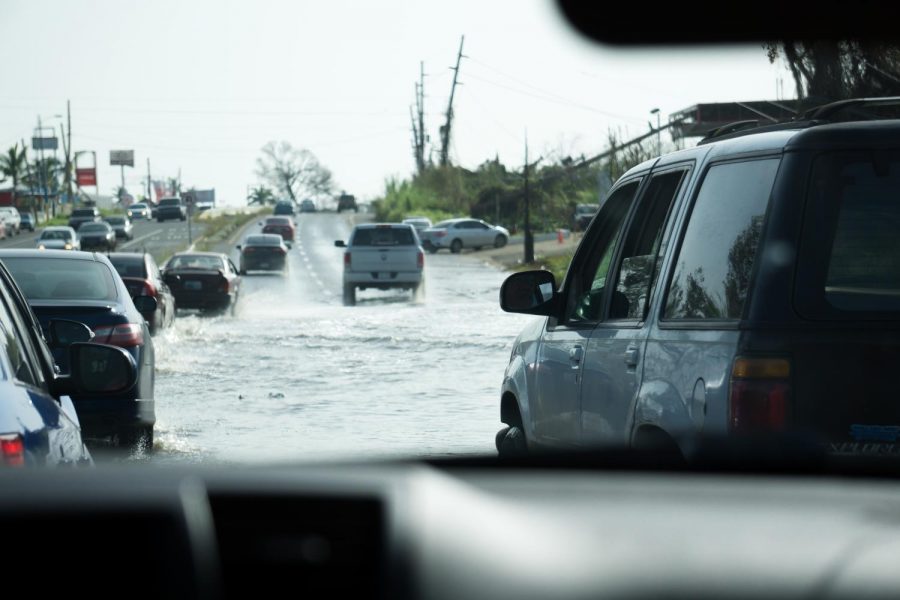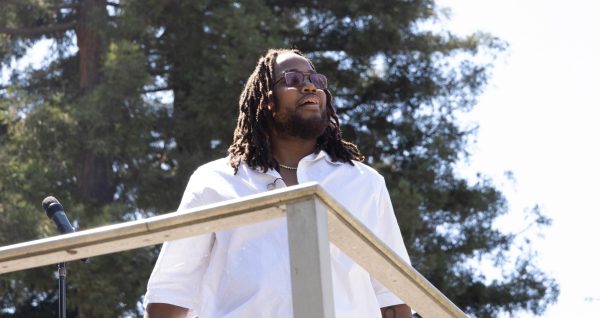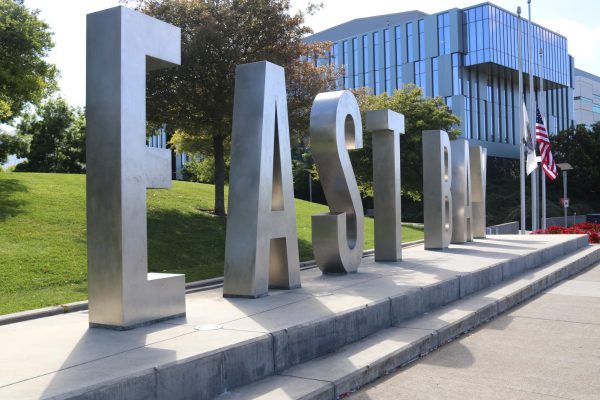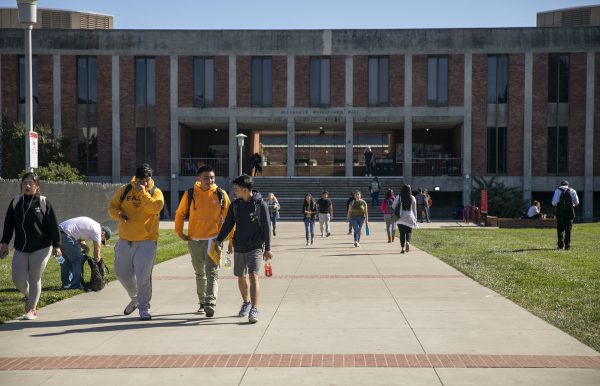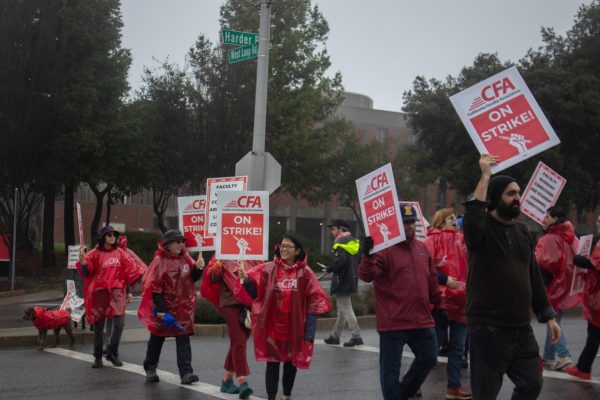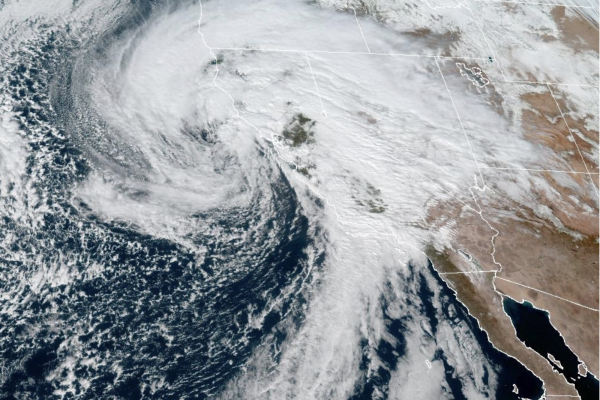Escaping Hurricane Maria in Puerto Rico
October 19, 2017
Upon his initial arrival to Puerto Rico, CSUEB student Juan Palencia was ready to experience life as an exchange student on the paradise-like island. However, instead of enjoying bright blue bioluminescent pools, finding hidden beaches with new friends, and embracing local culture, Palencia faced down a series of disasters he would never forget.
In preparation for Hurricane Irma, on Sept. 6, he and his roommates at the Interamerican University of San German Puerto Rico stocked up on essential supplies as instructed by campus staff. And hours later, the first storm hit.
The dormitory lobby, where Palencia and 30 other people were sheltering in place, lost power and board games, music, and dance served as suitable distractions to get through the dark night.
Once the storm passed and morning broke, Palencia and his roommates went outside to survey the damage; it was minimal and Palencia was able to attend classes. But one week later, there was news of yet another hurricane heading towards Puerto Rican shores. “Start getting ready for Hurricane Maria. Hurricane Maria is coming,” a local Puerto Rican said to Palencia. “And this one is coming right for us.”
After looking at the National Hurricane Center website, Palencia realized he had to leave immediately and contacted his parents on the mainland. “Just get out of there! I’ll buy your flight back home,” his mother said.
Palencia’s parents booked a flight departing that night. After packing his bag, he realized he needed a ride to the San Juan airport, which was over 100 miles away. Unfortunately, his frantic search ended in disappointment.
“This has to be happening for a reason,” Palencia expressed. “God is putting me here to experience this for a reason.”
Finding himself unprepared for the next storm, Palencia went to the store to buy water and food just as he had for Irma. But this time, there was no bottled water available, the water came in a different form: ice. Palencia resorted to melting ice for drinking water.
The seemingly mile-high light poles on the soccer field swayed like flexible trees as rooftops and sheds were ripped off like loosely-gripped Velcro. “It was insane,” Palencia expressed. Although inside the dormitory lobby they played music and danced, outside was a war zone. “It was about 10 a.m. when we heard the trees start breaking,” said Palencia.
Similar to Irma, the warmth of dormitory residents in lobby dancing to music, singing and playing board games contrasted the cold-to-your-bones whipping and thrashing winds as the skies grew darker.
After the storm calmed, he along with a few other students went outside to check the campus for damage.
Walking around the campus was eerie. Palm trees and other greenery covered the university ground and the stadium lights that usually lit the sky were missing from the horizon.
After walking for about 20 minutes, they headed back to the dorms. Just moments after they entered the building, the storm picked up right where it left off. Palencia narrowly escaped the eye of the hurricane.
Two days later, Palencia accompanied a few students to find their families in town. They found storefronts ripped off, McDonald’s signs torn to shreds, and trees blocked the roadways like it was their job.
By the fourth day, some of the less damaged stores and gas stations reopened. People began to flood into the town for supplies and gasoline.
Palencia had gotten in contact with his parents back home as he simultaneously found out his friends had started a GoFundMe campaign for a plane ticket and other essentials for when he got off of the island. As the fundraiser reached $200 more than the $700 goal, a ticket was purchased that would take him to San Francisco after a two-hour layover in Chicago. With the flight booked, all he needed to do was get to San Juan by Thursday night.
Luckily, Palencia met a student-athlete named Carlos who was also heading to San Juan for a flight. Thankfully, Carlos had a car, so Palencia and Carlos made a decisive plan to drive to San Juan that night. Carlos left campus early to get gas but returned empty-handed.
“Did you find gas?” Palencia asked Carlos.
“No, I was in line for nine hours and was stuck in a mile long line,” Carlos replied.
Palencia goes on to explain that although gas was being shipped out to these stations, they were unable to meet the high demand.
“Only one out of every four gas stations were working and they only received one or two gas trucks per day,” Palencia said. “You can only imagine how many people wanted the gas so it would come and go with a quickness.”
After this setback, Palencia and Carlos had to arrange other plans with very few options, and Palencia would have to survive the next week on his last $10. While in the dorms, Palencia heard about the possibility of the school chancellor heading to San Juan the next morning and was able to secure a ride with him. As word got out that Palencia would be leaving, he was graciously gifted $80 by two of his classmates that were planning to stay on the island.
Palencia described the trip, “The ride up north to San Juan was so eye-opening, seeing all the damage that the hurricane did, all the houses destroyed, the rivers that were overflowed.” He continued, “There was a car I saw that looked like it ran over a horse on the highway, the car was totaled and the horse was dead.”
Palencia and Carlos were dropped off by the chancellor at the house of Carlos’s coach to wait out the time until their flights. Carlos’s teammate drove them the rest of the way to the airport, and Palencia gave $20 to Carlos to hold him over until his flight the next Monday and another $20 to Carlos’ teammate for gas.
He now had to survive 18 hours in the humid airport. After delays and spending his last $15 on food and water, he was finally in line to check his bag. All was well until he realized that bag check in was a $25 fee, a full $10 more than what he had in hand. In a moment of frustration, he was helped by a businessman from Kansas City that he befriended as they waited for the plane to arrive. Gifting him more than enough for his bag check-in, Palencia gratefully boarded the plane and, with a sigh of relief, fell asleep to wake up in Chicago.
Arranging a ride from a fraternity brother in the area, Palencia would go to his house, shower, eat and drink before his connecting flight to San Francisco. Once reaching SFO, he was picked up and taken back to one of his brothers’ houses and slept. In traditional college fashion, Palencia was invited to a birthday party. While his friends celebrated a new year in the life of the birthday boy, Palencia felt relieved but still worried for his friends back on the island.
“I couldn’t believe that I went from such a disaster [like that] where tons of people are in a life or death situation,” Palencia said. “To hang out with people at a party who didn’t have a single clue or any sort of empathy towards what was actually happening. They were living their lives in complete comfort.”
Since his return to the Bay Area, Palencia has been actively trying to help hurricane survivors in Puerto Rico. In hopes of making a difference, Palencia, along with his brothers from Lambda Theta Phi Latin Fraternity Inc., will be holding a clothing, food, water, and cash donation drive from Oct. 23 to Oct. 30 at the CSUEB Hayward campus.




